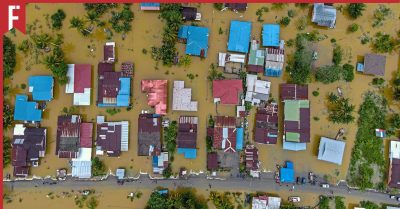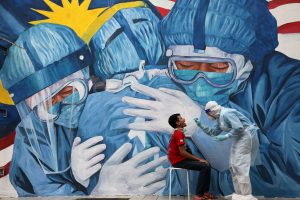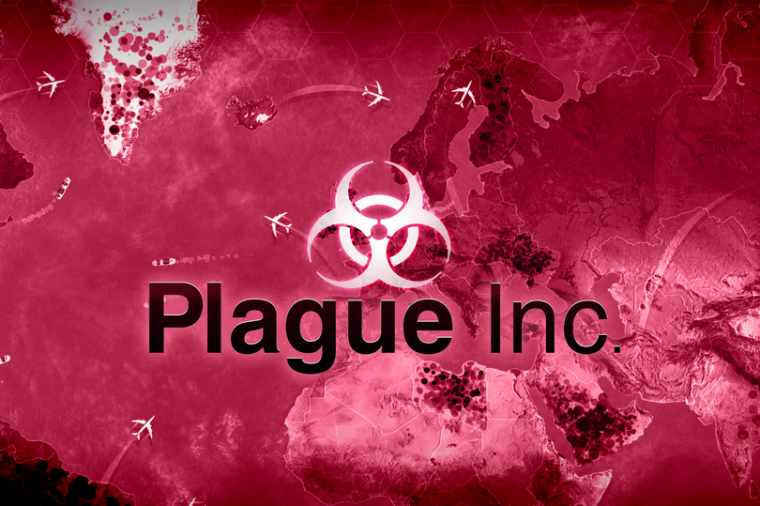
Confession time: I’ve never actually beaten the first level of Plague Inc. outside of easy mode.
I’ve tried to mix things up – combining together the most bizzare (and uncomfortable sounding) symptoms and playing around with all sorts of different transmission vectors.
I’ve remade the common cold, sent diseases across the ocean via birds, and even tried to recreate the Black Death by transforming rats into my personal plague spreaders. Yet in the end, I’ve never quite been able to wipe out all life on earth.
But We’re Not Here to Talk About My Terrible Gaming Skills

We’re here to discuss a more serious topic – the increasing number of health risks faced by people traveling internationally.
While the coronavirus/Wuhan Virus/Covid-19/whatever you want to call it has been hitting the headlines recently, it’s far from the first super-virus to appear in Malaysia over the past few years.
Anyone remember Ebola? How about SARs? Or even the swine flu and bird flu epidemics that swept through our nation just a few years back? Depending on how old you are, you might even remember the Nipah virus outbreak which caused a big fuss back in the late 90s.
Our World Is More Connected Than Ever Before, but Humans Aren’t the Only Things That Can Travel Around
One of the biggest issues with international travel is the risk of contracting foreign diseases. Illnesses that were previously confined to a limited area now have the chance to grow into an epidemic, infecting hundreds of thousands of people before a cure can be found.
From Flu to Fatality: 7 Types of Diseases That Travelers Need to Be Wary Of
In Plague Inc., you can choose a number of different transmission vectors for your disease. The trick is to find the right transmission method for the country you’re trying to infect.
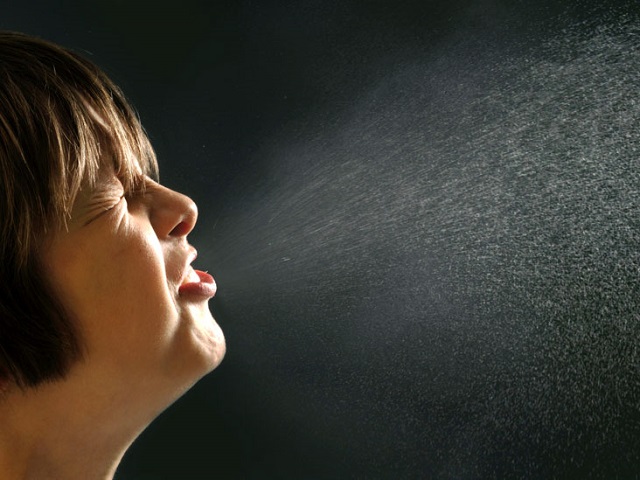
Depending on circumstances like climate, urbanization, and availability of modern medicine, some methods may be more effective than others. This is the same in the real world – a virus which thrives in a hot and humid climate like Malaysia may struggle to gain traction in a colder, drier country like Canada.
In the list below, I’m going to talk about the seven main transmission vectors shown in Plague Inc.
1) Air
One of the reasons why diseases like Covid-19 may have been able to spread so quickly is because they are transmitted through the air. This means whenever an infected person coughs or sneezes, they could spread their illness through the air. Some of the deadliest diseases in the world have been airborne, including a rather nasty illness known as Tuberculosis (TB).
2) Water
As you might guess from the name, waterborne diseases are spread through tainted or unclean water. Even with modern water treatment facilities, the World Health Organization estimates that 80% of all diseases worldwide are waterborne. One of the most well known waterborne diseases that travelers can get is Cholera.
3) Insects
Some diseases are spread by insect bites. Mosquitoes are the most well known example, but there are many other insects such as sand flies, fleas, and ticks that can carry disease. Here in Malaysia, we’ve all heard of dengue, but over in Africa they have something just as deadly – Malaria.
4) Livestock
Also known as zoonotic diseases, livestock borne illnesses are transmitted from animals to humans (or vice versa). Simply put, these are diseases that you can catch from common domesticated animals like cattle or sheep, though it can also come from contact with wild animals such as snakes or bats. One of the more virulent zoonotic diseases is Rift Valley Fever (RVF), which has ravaged Africa and the Middle East since its first appearance in the 1930s.
5) Birds
Wild birds – especially migratory species – can become long-distance vectors for a number of infectious diseases. We all remember the H5N1 avian flu epidemic which was spread by domestic chickens, but did you know that there are actually over 60 other diseases that can be transmitted by birds and bird droppings?
6) Rodents
Rodents such as mice or rats can transmit a number of diseases – either directly via infected rodents, or indirectly from fleas, ticks, or mites. Since the dawn of history, rats have been reviled around the world for their ability to spread plague. In fact, rats may have been responsible for one of the deadliest plagues in history: The Black Death.
7) Blood
Bloodborne diseases are caused by pathogenic microorganisms which can spread through blood and other bodily fluids. Aside from blood, you could also get infected through contact with semen, saliva, vaginal secretions, amniotic fluid, and other bodily fluids. When it comes to bloodborne diseases, there is one name that comes to mind immediately: HIV. The first big outbreak occurred in the US during the 80s. By 1999, it had claimed around 14 million lives, making it the fourth biggest cause of death worldwide.
What Can Travelers Do to Reduce the Risk of Diseases?
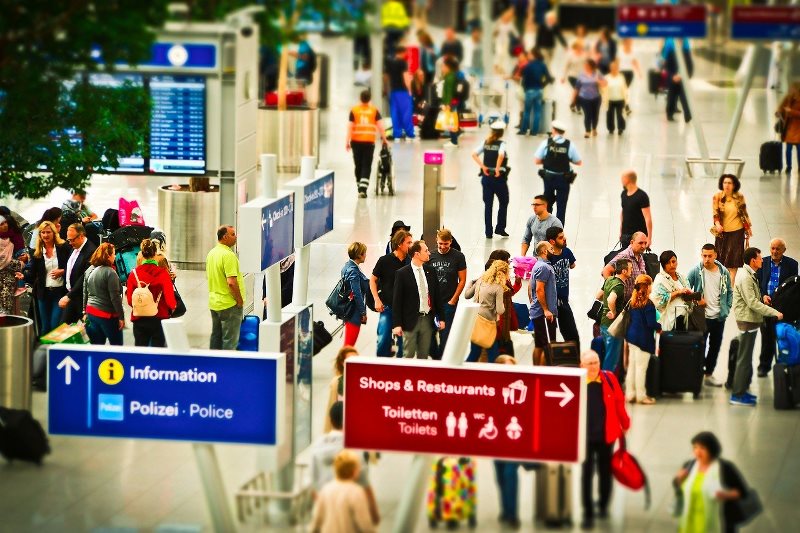
Plague Inc. creator James Vaughan says that “[W]henever there is an outbreak of disease we see an increase in players, as people seek to find out more about how diseases spread“.
Just last month, the game became one of the most downloaded iPhone apps in China – there has been so much interest that Ndemic Creations announced that “servers for multiplayer and custom scenarios are struggling to cope with very high player numbers.”
While Ndemic says that their game is meant to be educational, they’ve made it clear that people should not take it too seriously: “Please remember that ‘Plague Inc.’ is a game, not a scientific model“.
That said, while the game may not be 100% accurate, it does help to highlight how quickly a disease can spread if people fail to take the right precautions. As such, whether you’re traveling for business or pleasure, here are a few steps that every traveler should take to reduce the risk of disease:
Research, Research, Research
There’s a big difference between the diseases that you might find in, say, Russia and Madagascar. If you’re not sure where to start, the WHO website has a page listing for most of the countries in the world. Just find the one you’re traveling to and you can get an idea of the common diseases that you might find in that area.
Meet a Travel Health Professional
If possible, try to make an appointment with a travel health professional around 6 to 8 weeks before you leave. They can inform you of any specific health issues currently developing in the countries you’ll be traveling in and even provide you with any relevant medications or vaccines. Don’t wait till the last minute – some vaccines may require several weeks of treatment before they are effective.
Prevention Is Better Than Cure
If possible, avoid traveling to countries where there are currently epidemics or other medical emergencies. If you can’t, make sure to take every precaution necessary. While the specifics will depend on the disease, there are a few things you can do that are applicable in nearly all scenarios:
-
Avoid coming in close contact with infected individuals
-
Stay away from animals – whether it’s wildlife or a wet market
-
Don’t drink the tap water. Stick to bottled or boiled if possible
-
When searching for something to eat, pass on street food, especially if it includes raw or undercooked meat
-
Keep yourself clean! There’s a reason why easy mode on Plague Inc. mentions that “nobody washes their hands”
-
Practice safe sex! Don’t let a night of passion turn into a lifetime of regret.
Of course, taking care of your health in real life is nowhere near as easy as playing a game. After all, if you get sick, there are no cheat codes or reloads to instantly bring you back to full health.
By taking these simple steps, you can rest easy and enjoy your vacation without worrying about bringing back any unwanted guests. Remember: when it comes to your health, don’t let viruses play on easy mode.
You may be interested to learn that our government has recently launched a new and improved expansion of the mySalam health service. Click HERE to find out more.
Now if you’ll excuse me, I want to see if I can beat the next level without cheating or if the people of Greenland are about to ruin my chances of victory once again. Wish me luck.



